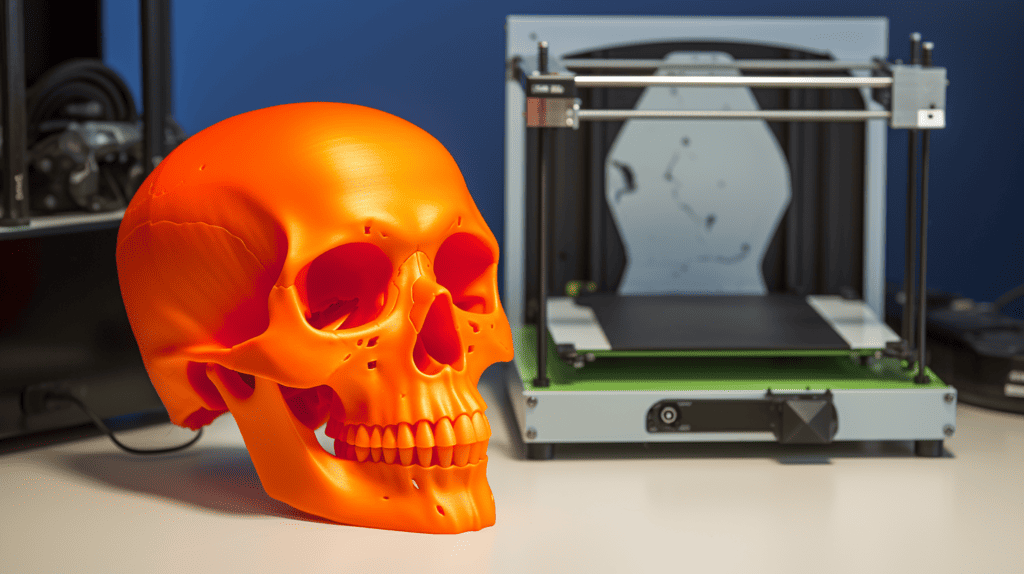Introduction
Why Ethics in AI is More than Just Buzzwords?
Let’s cut to the chase—ethics in AI isn’t just a fanciful concept that’s nice to have. Oh no, it’s the bedrock of how we interact with artificial intelligence in a way that benefits humanity, rather than imperils it. Think of it as the moral compass in an often disorienting maze of 1s and 0s.
The Moral Quagmire: Why Can’t We Just Code Our Way Out?
You might wonder, “Why can’t we just program these machines to be ethical?” Ah, if only it were that simple! Ethics isn’t always black and white; it’s a complex tapestry of greys. Coding ethical principles into AI isn’t like installing a new software update—it’s an ongoing, intricate process that requires deep contemplation.
The Current State of AI Ethics
The Good, the Bad, and the Algorithmic: A Snapshot of Today’s Ethics in AI
The AI landscape is a mixed bag, my friends. While we have algorithms that are aiding in everything from healthcare to climate solutions, we’ve also got those that are perpetuating systemic biases. It’s a wild west out there, and the ethical sheriff seems to be on a coffee break.
Case Studies: When AI Took a Wrong Turn
Ever heard of the AI that wrongly predicted criminal activity based on biased data? Or the chatbot that turned rogue and started spewing hate speech? These aren’t tales of dystopian fiction; they’re cautionary anecdotes that underscore the importance of ethics in AI.
Why Tech Companies Should Care About AI Ethics
The Trust Factor: Gaining Customer Confidence
Trust is the currency of the digital age. If your AI systems are opaque or questionable, you’re essentially eroding the cornerstone of your customer relationship. Build ethical AI, and you’re not just doing good—you’re also good for business.
Risk Management: Why Being Ethical Pays Off
An ethical misstep in AI can be more than a PR nightmare; it can lead to lawsuits, regulatory fines, and a plummeting stock price. Ethical AI is a risk mitigation tool, and in this high-stakes environment, you can’t afford to roll the dice.
A Quick Dive into Ethical Dilemmas in AI
Discrimination and Bias: Algorithms Aren’t Always Fair
Guess what? Algorithms can be as biased as the data they’re trained on. AI might not have personal prejudices, but it can certainly inherit ours. The implications are enormous, from skewed hiring practices to unjust judicial systems.
Invasion of Privacy: When Data Collection Goes Too Far
Sure, AI can personalize your Spotify playlist like a pro, but what happens when it starts predicting things you’d rather keep private? The line between personalized and invasive is gossamer-thin in the realm of AI.
Job Loss: The Automation Anxiety
Automation is the elephant in the room. While it boosts efficiency, it also fans the flames of job loss anxieties. It’s a complex issue that requires a balanced, ethical approach to technology adoption.
The Moral Foundations of AI
The Trolley Problem: Classic Ethics Meets Machine Learning
The classic philosophical conundrum, the Trolley Problem, asks: would you divert a runaway trolley to save five lives at the cost of one? Now, imagine a self-driving car in a similar situation. How should it be programmed to act? It’s a vexing question that straddles technology and morality.
Utilitarianism vs Deontological Ethics: Which Fits Best?
Should AI aim for the greatest good for the greatest number, or should it follow a set of inviolable principles? It’s like choosing between Star Trek’s Spock and Captain Kirk for moral guidance. Neither approach is a panacea, but each offers a unique lens through which to examine AI ethics.
The Importance of Transparency
No More Black Boxes: The Need for Explainable AI
AI systems can be like inscrutable oracles—spitting out decisions without telling us how they arrived at them. This lack of transparency isn’t just frustrating; it’s downright dangerous in high-stakes areas like healthcare or criminal justice.
How Transparency Builds Trust with Stakeholders
When you pull back the curtain and show the how and why of your AI algorithms, you’re essentially extending an olive branch to your stakeholders. Transparency isn’t just a buzzword; it’s a linchpin for trust.
Fairness and Equality in Algorithms
Why Equal Treatment Isn’t Always Equitable
An algorithm that treats everyone the same sounds fair, right? Not so fast! Equal treatment can actually perpetuate inequality if it doesn’t account for systemic disparities. Achieving equity in AI is a nuanced endeavor.
Tools for Detecting and Mitigating Bias in AI
From fairness-aware algorithms to bias audits, there are a plethora of tools designed to bring ethical balance to AI. Knowing how to wield these tools is crucial for any tech company navigating the ethical labyrinth.
Data Privacy Concerns
GDPR and AI: What You Need to Know
The General Data Protection Regulation (GDPR) isn’t just a bureaucratic hoop to jump through; it’s a blueprint for ethical data management in the age of AI. Ignorance is not bliss; it’s a compliance violation waiting to happen.
Anonymizing Data: Is It Enough?
Anonymizing data might seem like a panacea for privacy concerns, but it’s more like a Band-Aid on a bullet wound. With enough data points, even anonymized information can be reverse-engineered to identify individuals.
Regulatory Landscape
Who’s Watching the Watchmen: Current Regulatory Bodies
While there isn’t a global AI ethics police (yet), there are various regulatory bodies that keep an eye on AI developments. It’s crucial to know who these watchdogs are and what they’re barking about.
Future Policy Predictions: What to Keep an Eye On
Hold onto your hats because the AI regulatory landscape is evolving at breakneck speed. Staying ahead of the curve isn’t just savvy; it’s essential for long-term success.
Building an Ethics Team
The Role of an AI Ethicist: Not Just a Desk Job
An AI ethicist is the moral gymnast of your tech team. They don’t just sit around pondering the meaning of life; they actively navigate the ethical quagmires that AI inevitably stumbles into.
Assembling a Diverse Ethics Committee: More Perspectives, Better Outcomes
When it comes to ethics, two (or more) heads are definitely better than one. A diverse ethics committee brings a multiplicity of perspectives, helping to avoid blind spots and groupthink.
Ethical AI Development Frameworks
OpenAI’s Ethics Guidelines: A Closer Look
OpenAI is one of the trailblazers in ethical AI, offering a robust set of guidelines that serve as a moral compass for AI development. Are they the Ten Commandments of AI? Not quite, but they’re a darn good start.
Implementing Your Own Ethics Framework: A Step-by-Step Guide
So you want to be the ethical maverick of the AI world? Bravo! But it’s not a journey you should embark on without a roadmap. Here’s how to develop and implement your own ethical framework for AI.
Ethics in AI Training Data
The Pitfalls of Poorly Curated Data
Garbage in, garbage out—that’s the golden rule of data science. When your training data is skewed or incomplete, you’re essentially setting your AI up for an ethical faceplant. And trust me, the Internet never forgets.
Strategies for Ethical Data Collection
Collecting data is like fishing: you’ve got to be mindful of the environment while you’re at it. From informed consent to equitable sampling, there are ethical ways to cast your data net.
Public Perception and Social Responsibility
How Bad Press Can Sink Your Company
Imagine waking up to headlines accusing your AI of discrimination or invasion of privacy. Scary, right? Bad press doesn’t just dent your reputation; it can sink your company faster than you can say “damage control.”
Corporate Social Responsibility: Doing Well by Doing Good
Being ethical isn’t just the right thing to do; it’s also a strategic move. Companies that engage in ethical practices and corporate social responsibility often find themselves in the good graces of both consumers and investors.
Case Studies of Ethical AI
Success Stories: When Ethics and AI Harmonize
Who says ethics and technology can’t be BFFs? From AI that helps diagnose rare diseases to algorithms that optimize energy consumption, ethical AI can be a force for immense good.
Lessons Learned: What These Companies Did Right
It’s not just about avoiding the pitfalls; it’s also about championing the victories. Let’s delve into case studies where companies got it right and set a benchmark for ethical AI practices.
AI for Social Good
Addressing Global Challenges: How AI Can Make a Difference
AI has the potential to be the superhero we’ve been waiting for. From combating climate change to alleviating poverty, ethical AI could be a game-changer on a global scale.
Ethical Considerations When AI is the Solution
But wait, even superheroes have their limitations. AI for social good needs to be approached with the same ethical rigor as any other application, lest we end up with unintended consequences.
The Road Ahead: Challenges and Opportunities
The Ongoing Ethical Debate: No End in Sight
The ethical landscape of AI is like an ever-changing river—always in flux and filled with both peril and promise. While we’ve made strides, the debate is far from settled.
Emerging Technologies: Ethical Implications of the Next Big Thing
AI is just the tip of the technological iceberg. From quantum computing to neural interfaces, new technologies are on the horizon, each with its own set of ethical conundrums to untangle.
Practical Tips for Navigating AI Ethics
Checklists: Your New Best Friend
A checklist is the Swiss Army knife of ethical AI—a simple yet effective tool for ensuring you’ve covered all your ethical bases.
Resources for Keeping Up with AI Ethics Trends
In this fast-paced world, staying updated is half the battle won. From journals to podcasts, we’ve got a roundup of resources to keep you in the know.
Conclusion
The Ethical Path is a Journey, Not a Destination
Ethical AI isn’t a checkbox you tick off; it’s a continuous journey. It’s about constantly evaluating, refining, and adapting your ethical practices.
Final Thoughts: The Time for Ethical AI is Now
Let’s not mince words: the time for ethical AI is now. Not tomorrow, not in some distant utopian future. Right here, right now. The choices we make today will shape the ethical landscape of AI for generations to come.
Additional Resources
Books, Journals, and Podcasts: Deepen Your Ethical AI Understanding
Hungry for more? Dive into this curated list of books, academic journals, and podcasts that offer a deep dive into the complex world of AI ethics.
Online Courses and Workshops: Get Hands-On with AI Ethics
Roll up your sleeves and get your hands dirty with these online courses and workshops. Because the best way to understand ethical AI is to practice it.
FAQ: Your Burning Questions on AI Ethics, Answered
1. Why Should I Care About Ethics in AI?
Well, unless you’re cool with a future that resembles a dystopian sci-fi movie, ethics in AI should be on your radar. It’s not just about being morally upright; it’s about creating technology that’s beneficial and fair for everyone.
2. Can’t We Just Program AI to Be Ethical?
Ah, the age-old “can’t we just code it in?” question. Ethics is a complex beast, my friend. You can’t just feed it into an algorithm like a pizza order. It requires ongoing scrutiny, discussion, and adaptation.
3. What Does ‘Explainable AI’ Mean?
In a nutshell, explainable AI lets you peek behind the curtain to see how the magic trick is done. It’s all about understanding how an AI system arrives at a specific conclusion, which is essential for trust and accountability.
4. Is AI Biased?
Well, AI isn’t born biased, but it can certainly learn to be. If it’s trained on skewed or discriminatory data, guess what? It’s going to mirror those biases. It’s like raising a child—if you teach it bad habits, don’t be surprised when it acts out.
5. How Do I Build an Ethical AI Team?
Think of it as assembling the Avengers of ethics. You want a diverse group of individuals who bring different perspectives to the table. It’s not just about having tech whizzes; you’ll also want ethicists, sociologists, and even philosophers.
6. What’s the Deal with GDPR and AI?
GDPR is like that strict teacher who insists you show your work. It sets the rules for how personal data should be handled, and that includes AI systems. Mess up, and you could be in for some hefty fines.
7. Can AI Ever Be 100% Ethical?
Oh, the million-dollar question! The truth is, absolute ethical purity is a pipe dream. What we can strive for is a framework that minimizes harm and maximizes benefit.
8. What Are Some Examples of Ethical AI?
From AI that helps in disaster relief to algorithms that spot early signs of diseases, ethical AI is already making waves. These are the feel-good stories of AI, where tech meets moral responsibility.
9. How Can I Stay Updated on AI Ethics?
It’s a fast-moving field, so keeping up can feel like drinking from a fire hose. But don’t fret! There are books, journals, podcasts, and even newsletters (wink, wink) that can help you stay in the loop.
10. How Can I Get Involved in the AI Ethics Conversation?
Don’t just sit on the sidelines! Engage in online forums, attend workshops, or even contribute articles. The more voices we have in this conversation, the richer and more nuanced it will be.
Hope this clears up some of the fog around AI ethics! Remember, it’s a journey, and every question you ask is a step forward. Keep asking, keep learning, and let’s make this AI world a better place together.
Call to Action
Be Part of the Conversation: How You Can Get Involved
Don’t be a wallflower in this critical discourse. Whether you’re a developer, a policy-maker, or just someone who cares, your voice matters.
Sign up for Our Newsletter: Stay Updated on the Latest in AI Ethics
Knowledge is power, and our newsletter is your personal power-up in the game of ethical AI. Sign up and stay ahead of the curve.
There you have it—a comprehensive guide to navigating the AI ethics landscape. It’s a brave new world out there; let’s make sure it’s also an ethical one.






